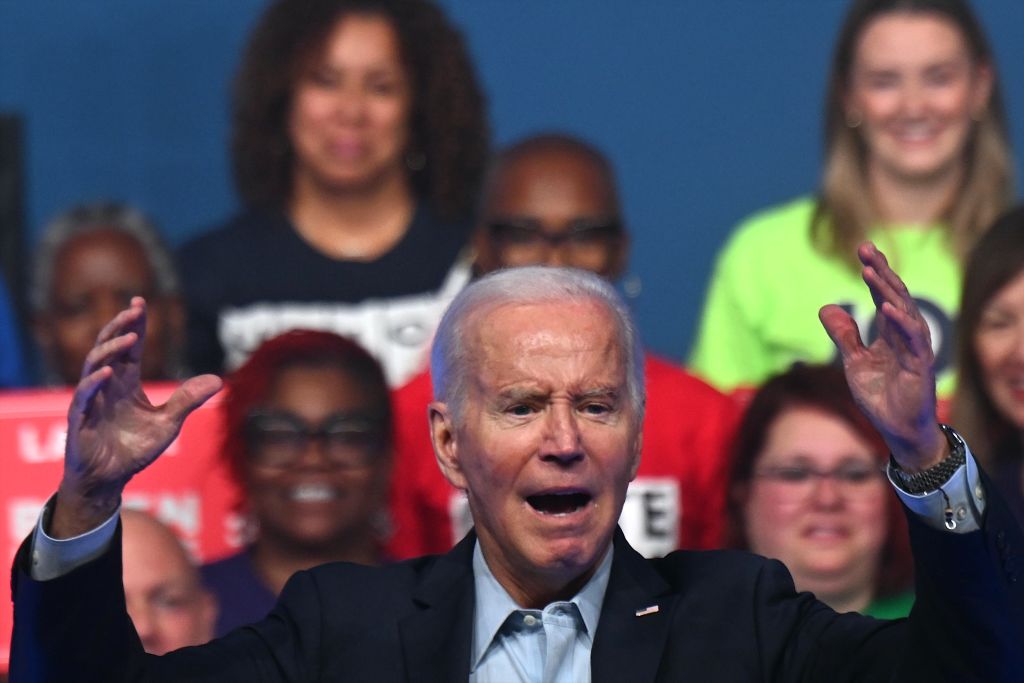When a serious, established pollster releases a new survey regarding the electoral math for the 2024 presidential election, it creates a slew of articles, video snippets, and commentary. And why wouldn’t it? The question of who is likely to become the next president of the United States is perhaps the most important that will be asked. Why then would polls from one of the most respected organizations in the business effectively be ghosted? When delving into the results, the absence of a deerstalker hat and cries of “Elementary!” appear no barrier to solving this particularly curious case.
The Mysterious Ghost Poll
The latest Harvard/HarrisX poll – notably conducted from June 14 to 15, a full day after former President Donald Trump was arraigned in the Miami federal court – strongly suggests that this latest indictment has little to no negative impact on the 45th president. In fact, respondents favor the former commander-in-chief by a clear six points over President Joe Biden, and by seven points against VP Kamala Harris. This is a full-point improvement for Trump since the last Harvard survey.
But it gets worse for Mr. Biden.
On every single topic from the economy and jobs to inflation and general administration, Joe Biden fails to break the 50% mark. A selection of the more notable numbers includes:
- The Economy: 39% approval
- Immigration: 35% approval
- Violence and Crime: 37% approval
- Handling Inflation: 36% approval
The only area of interest where Biden even gets close to 50% is with his handling of the coronavirus crisis (49%), an issue that only 5% of those surveyed say rates as one of their top three concerns.

(Photo by Mark Makela/Getty Images)
Polls by Comparison
Other recent polls seem to receive the weight of prophecy. They are discussed and dissected by panels of talking heads ad nauseum, and feature prominently in the top news spots. So why has the Harvard/HarrisX poll not had the same exposure? A fictional sleuth and his trusty sidekick might assume that the Fourth Estate is once again acting as a gatekeeper to any information that might scupper its favored candidate’s electoral hopes. “There is nothing more deceptive than an obvious fact,” Homes famously quipped.
Consider the host of ABC’s This Week, Jonathan Karl, reacting to the most recent Quinnipiac poll, that put Joe Biden a mere four points ahead of Donald Trump:
“A poll from Quinnipiac on a possible Biden/Trump matchup puts Biden at 48%, Trump at 44%. This is a poll, again, taken largely after the indictment. I mean, that’s going to make you – that’s within the margin of error. That’s a statistical tie… What does that say about Biden if he’s barely beating Trump?”
If Karl had wanted to inform his viewers of the state of play, and, indeed, make the point that despite the latest indictment, the gap between the two top candidates remains close, surely the Harvard/HarrisX poll would have been better suited. After all, the Quinnipiac survey was both smaller in size, and almost completed by the time the federal charges were levied. But as our fearless detective was wont to note, “No man burdens his mind with small matters unless he has some very good reason for doing so.”
A Dangerous Game?
Holmes often remarked that “when you have eliminated the impossible, whatever remains, however improbable, must be the truth.” So, what is the truth? Why would a significant poll be consigned to the political memory hole? It seems that the media is once again engaged in committing the sin of omission. Rather than dutifully report the facts as they are found, the denizens of the industry are intent on painting a picture that does not, in fact, equal the truth. As the election draws ever closer, it appears the game is, indeed, afoot.



